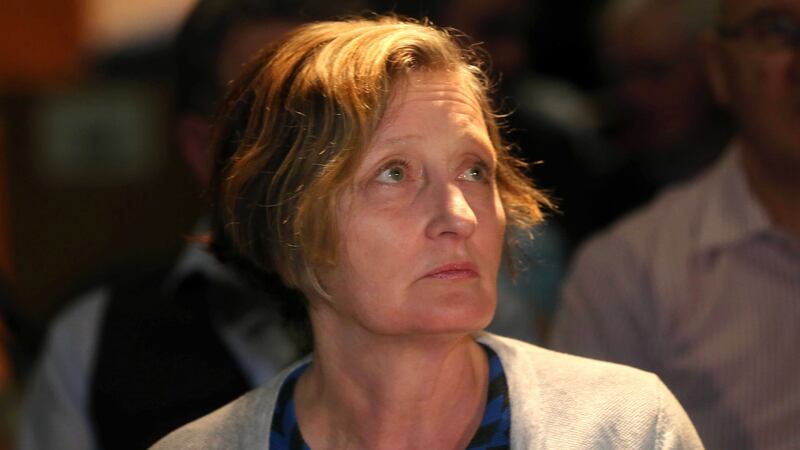GIVE the various and conflicting approaches to dealing with the past, the frustration of victims is understandable.
At a recent lecture hosted by Relatives for Justice, Geraldine Finucane, wife of murdered solicitor Pat Finucane, spoke with her usual strength and dignity, but the strain of a 27-year campaign was visible on her face.
Only a robot could not be affected by the appalling manner her family and the families of hundreds of other victims have been treated by both protected perpetrators on both sides and the state who facilitated them.
Chief Constable George Hamilton last week said he would support discussions about when a line could be drawn under our troubled past. And from a purely policing point of view his comments are understandable given his perspective is based on resources and the political implications for police, seen as being partial to one side or another when it comes to historic investigations.
Policing in Northern Ireland by its very nature is political and it was always going to hinder policing the here and now when the spectre of policing failures of the past are ever looming.
It's been said before - but continues to be the case - that there is no one size fits all solution to dealing with the past. What will satisfy one family as a solution to healing hurt will not work for another and at times two members of the same family may even disagree on the correct path to justice.
And while there are families who have put their heads above the parapet, campaigned, called out and exposed those who would seek to conceal the actions of paramilitary groups and state, there are hundreds more whose names are not instantly recognisable but who have suffered every bit as much.
I've sat in the homes of people who have lost a mother, father or child and who have told me that I'm the first person to actually ask questions about what happened to their family and how loss impacted their life.
It's never ok in any society, even a dysfunctional one such as ours, that truth recovery is left in the hands of the media alone without threat of judicial or official sanctions.
The state and those who would seek to cover up past actions of informer ridden paramilitary groups have adopted a number of tactics.
One is to renege on commitments made during the Stormont House negotiations that would allow access to previously confidential files and therefore facilitate truth recovery.
Secretary of state Theresa Villiers has now said it will not be possible to release all the documents because of the threat to current national security from dissident and Islamic terror groups.
Given that most of the killings still to be fully investigated happened 30 plus years ago, to suggest tactics for dealing with terrorists haven't changed, advanced or modernised in that time is a ludicrous claim and one that insults the intelligence of those victims seeking truth.
The other tactic is to stifle the media investigating and exposing wrongdoing by claiming revealing uncomfortable truths is 're-traumatising' victims. What's actually further traumatising victims is being denied answers and anything even remotely passes for justice.
What is re-traumatising them is the delay in conducting investigations, inquiries or inquests into their loved ones' deaths.
There is constant deflecting of responsibility from the state to loyalist paramilitaries, who in many cases simply saw themselves as an extension of the government.
And by republicans who helped peddle the myth they were the victims of a dirty war when in many cases they were as compromised as the UDA or UVF and who seek to cover up the extent to which they were infiltrated and the innocents who suffered as a result.
And what of unionist politicians who take a moral high ground when it comes to republican actions yet the parties they represented for many years acted as unofficial cheer leaders for loyalist paramilitaries, members of which continue to be funded and feted by Stormont.
All of this re-traumatises victims and will continue to cause pain until properly resourced solutions are put in place to give answers and truth recovery to families.
Among this package of healing must be properly funded treatment and counselling for those abandoned to deal with their grief alone for far too long.
None of these solutions are a line in the sand. Too much has gone on in this place, too small for a South African style truth commission, too large a problem to allow the current situation of stalling to continue.
A peaceful and prosperous future will only be possible when we face up to and deal adequately with our past.
The excuses and deflections need to stop and the needs of those who have lost the most need to come first.
Then and only then can we look towards the future with positivity.








